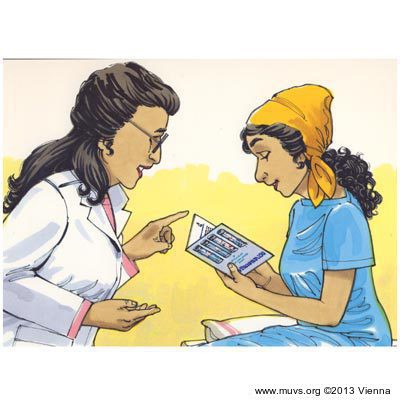Tell Me What I Want to Know, Not What You Want to Tell Me
When informational material about contraceptive pills goes into more detail about what patients need or want to know, they learn and retain more information, and are more likely to take their pills regularly. When, on the other hand, communication concentrates on what doctors, manufacturers and legal experts consider important, patients tend to react in a certain way. They forget their pills more often, and the risk of unwanted pregnancy rises as a result.
Awareness of this effect is nothing new in other areas of daily life: communication tailored to the target audience is much more effective. Concentration on what the speaker or writer considers important, on the other hand, might not get the message across as well. When someone determines what the target audience already knows and wants to learn will enjoy an attentive group of listeners or readers, and will be voted for, sell their products, and will be in high demand.
This fact has rarely been taken into consideration in the field of medicine. It remains highly paternalistic, and the great importance of questions of liability dominates communication with patients, users and consumers. Thus, the study recently conducted at Berlin’s Charité hospital is the first ever to examine this phenomenon in a comparison of two information brochures. One was based on a classic type of brochure prepared by a German Medical Associaton and contained facts that doctors consider important. For the other, the level of the patients’ knowledge was ascertained beforehand. It was shown that, with regard to certain kind of risks in particular (e.g. cancer and thrombosis), both a high level of interest and also incorrect beliefs influenced patient behaviour.
Questionnaires were used to determine how much information the patients learned from the two brochures. Three months later, their retention was checked, and it turned out that the patients benefited a great deal more from information orientated toward what they already knew and their interests. When someone is more familiar with a situation, they have a greater feeling of security and behave in a more consistent manner. In concrete cases, the risk of unwanted pregnancy can be greatly reduced as a result.
Source: Knowledge matters – Impact of two types of information brochure on contraceptive knowledge, attitudes and intentions. EJCRHC 2011, Early Online: 1–9
